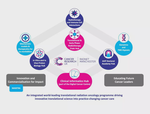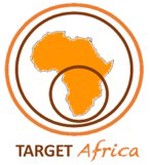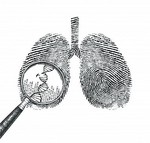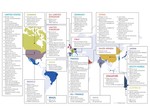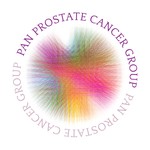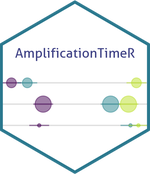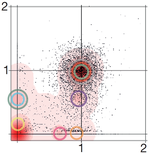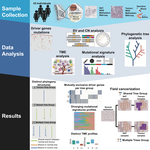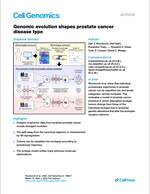Wedge Group
Cancer Evolution and Heterogeneity
The focus of the group’s research is cancer evolution and heterogeneity. Cancers are made up of a heterogeneous mix of cells, each bearing a different set of mutations in its DNA. We aim to characterise groups of cells, or ‘subclones’, according to their mutational profiles and to study the interactions between subclones. Tumours are difficult to treat because they change over time, gaining mutations that enable them to metastasise to distant organs or that result in resistance to treatment. By comparing multiple samples, we can identify those mutations that cause relapse and progression. Using genetic markers, we can also track the spread of disease, giving us insights into the mechanisms and processes involved in cancer growth and metastasis.
The tumour microenvironment
Tumours do not grow in a vacuum, but are surrounded by non-cancerous cells, including: stromal cells, which form the connective tissue in our bodies; immune cells, whose function is to protect the body against foreign invaders; and the extra-cellular matrix, which is a complex mixture of large molecules that affects the physical properties of tissue. To get a full picture of the factors that affect how aggressive a tumour is and how it responds to treatment, we study the interactions of cancer cells with the surrounding microenvironment, using spatial techniques with near single cell resolution.
Diversity and inclusion
Every human being is unique and, similarly, every cancer has its own unique features. For example, the incidence of prostate cancer is two times higher in men of African ancestry than in men of European ancestry. In order to increase the diversity of the participants in our research and to discover why some cancers are particularly aggressive in specific ethnic groups, we collaborate with scientists in several countries across Africa and Asia. Current projects include studies of oesophageal cancer in Kenya; prostate cancer in South Africa; breast cancer in Nigeria, Malaysia and Hong Kong.
The exposome
Throughout our lives, the cells in our body are exposed to a variety of chemical, physical, biological, and social factors, any of which may affect our risk of developing cancer. These factors are collectively known as the ‘exposome’. One way of studying the exposome is to analyse the genetic scars (mutations) left in our DNA by these exposures. We are investigating the patterns of mutations occurring in patients in the UK as well as in many other countries, and hope to link each pattern to a specific factor, or set of factors, in the exposome.
The Wedge group
David Wedge is based at the Manchester Cancer Research Centre, and is affiliated to the University of Manchester and the Christie Hospital. Members of the team study a wide range of cancer types, including oesophageal, gastric, prostate, ovarian, lung, pancreatic and breast cancers. Some members of the team are based at the Christabel Pankhurst Institute. Working within the NIHR Manchester Biomedical Research Centre, they are investigating the use of new technologies to improve diagnosis of multiple diseases. David’s University of Manchester webpage provides further information on the research activities of the group.
A strength of the Wedge group is its diversity, with members of the team hailing from 12 different countries, and with equal numbers of men and women. We welcome researchers with varying levels of experience, from Masters’ and PhD students through to experienced postdoctoral scientists. Many members of the team have backgrounds in other fields, and we are a mixture of clinical and non-clinical researchers. We welcome visiting researchers from other Institutions and have recently hosted researchers from Malaysia, Germany and the Netherlands.

